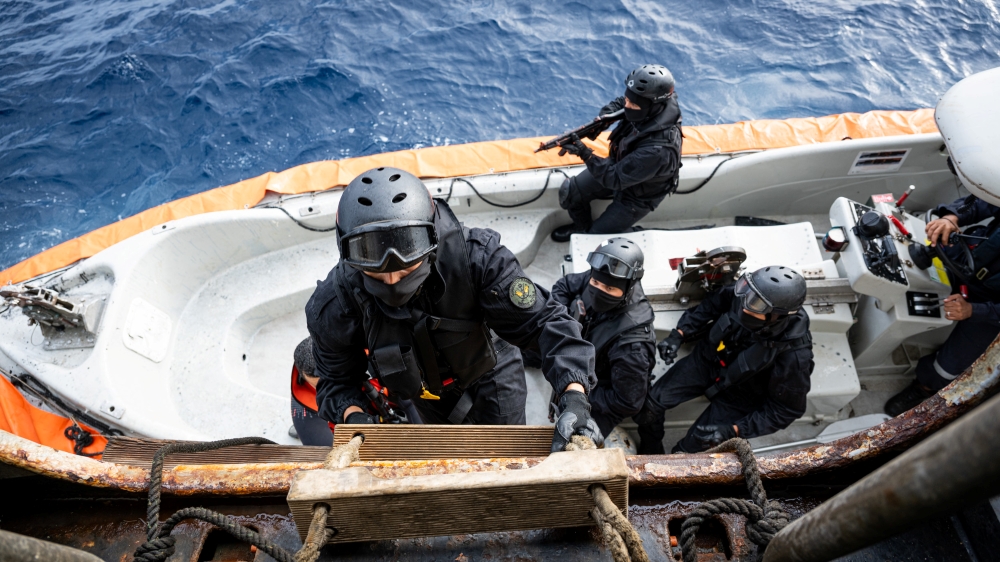
Following yesterday’s operations, French military personnel – probably Commandos Marine (French Naval Commandos), pictured - forcibly boarded the vessel last night, conducting. The captain and first officer were arrested and taken into police custody by the Brest prosecutor's office. Their detention has been extended to the following days, as investigators continue examining the vessel for evidence of serious maritime violations.
Video footage broadcast by French media shows soldiers patrolling the tanker's deck, with armed personnel positioned on the bridge and throughout the 244-meter vessel. The operation involved helicopter support and RHIBs, following standard French Navy protocols for high-risk maritime interdiction.
Brest public prosecutor confirmed the arrests stem from the crew's "failure to justify the nationality of the vessel" and "refusal to cooperate" with French maritime authorities. The investigation has expanded beyond documentation violations, with President Macron confirming "very serious offenses" that justify the ongoing judicial procedure. French military personnel remains on board the vessel as of October 2, conducting detailed forensic examination of the tanker's systems, communications equipment, and deck areas. Investigators are specifically searching for evidence of removable drone launch rails, unusual fastening marks, and radio-frequency equipment inconsistent with standard tanker operations.
The PUSHPA detention represents the first forcible boarding of a Russian Ghost Fleet vessel by a NATO country, marking a significant escalation from passive monitoring to active maritime enforcement. The vessel's potential connection to Danish drone attacks has transformed this from a sanctions case into a hybrid warfare investigation with broader European security implications.
The Kremlin denied knowledge of the vessel, with spokesman Dmitry Peskov stating Russia was 'unaware' of the ship but noting that “the Russian military occasionally needs to intervene to restore order when foreign nations engage in (what he termed) 'provocative actions”. While not a direct threat, this response underscores the significance of France's aggressive enforcement action.








